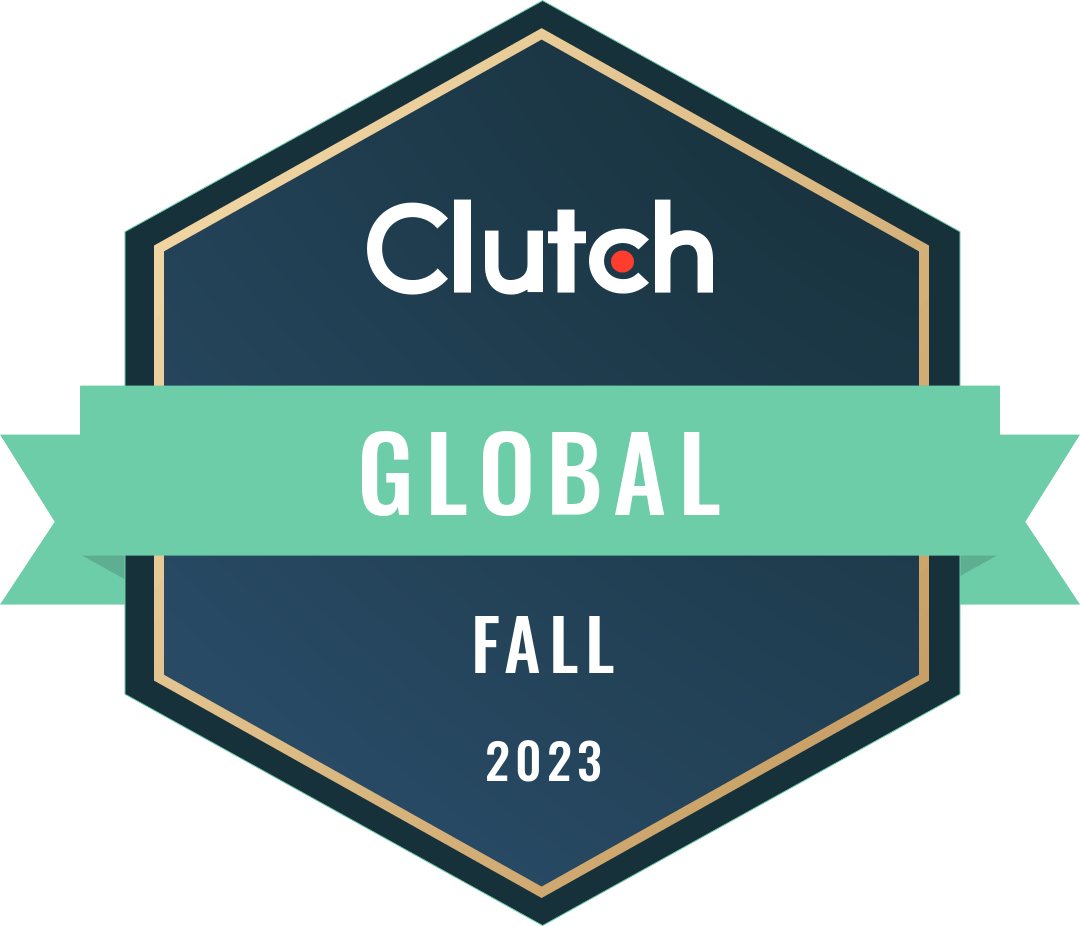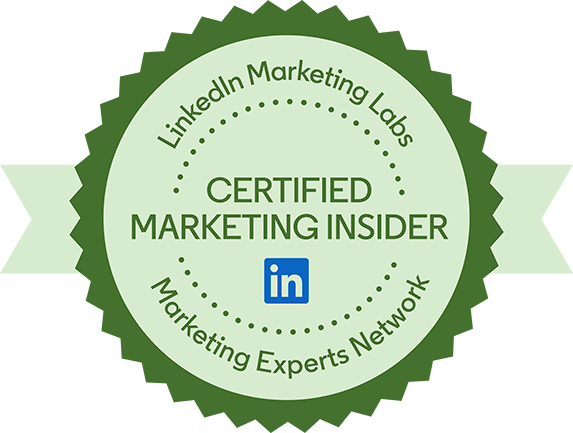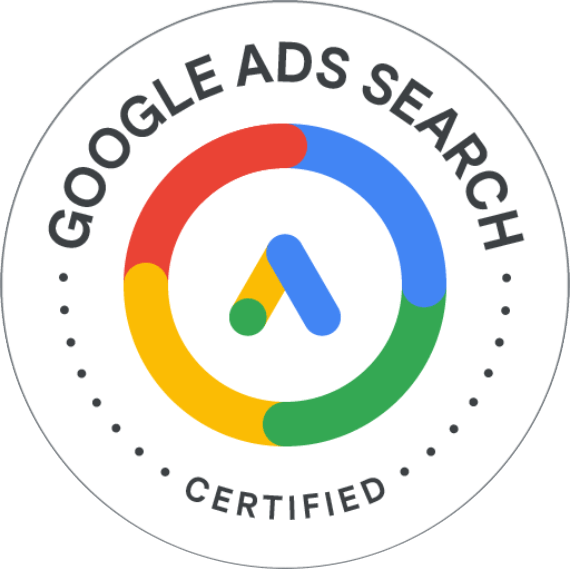How to Optimise Your Brand & Website for ChatGPT?
Date : June 18, 2025 By
Contents
- 1 Recognizing ChatGPT’s market share and popularity
- 2 Is It Actually Possible To Optimise For ChatGPT?
- 3 What Is Optimised For ChatGPT: Just A Website Or The Whole Brand?
- 4 ChatGPT Optimisation Outcomes: What You Stand To Gain From It
- 5 AI Search Study by Otterly in the Context of ChatGPT
- 6 Top Domains Cited by ChatGPT
- 7 When to Target ChatGPT for Brand Exposure
- 8 NP Digital View on ChatGPT Optimisation Factors
- 9 Strategies to Enhance Your Brand’s Presence
- 10 My Content Optimisation Methodology for ChatGPT
- 11 ChatGPT Optimisation Case Study with Bacula Enterprise
- 12 Conclusion
We are living in an era where AI is redefining how people discover and engage with content online. The future of search is currently shifting from keyword-driven results in the form of links to publisher websites to conversational, context-aware answers provided by several AI search platforms. ChatGPT stands as a major transformative tool in a plethora of these AI search tools, as it boasts over 300 million weekly active users and integrations across several prominent platforms such as Bing, Microsoft Copilot, and GPT Store. Since its inception, ChatGPT has evolved beyond being just a chatbot to a solution that is used to influence brand perception, customer journeys, and enhance search visibility.
Users are increasingly turning to ChatGPT for all the information they need, ranging from top-funnel problem research and product recommendations to competitor comparisons, technical how-tos, and business insights. According to studies like Otterly.AI’s GEO Reports and NP Digital’s findings, AI-powered research is not only competing with Google in certain contexts but is completely reshaping how trust and authority are being built in the online space.
ChatGPT is currently taking the lion’s market share of 79.83% among the generative AI chatbots with about 37.5 million search-like prompts per day, giving it about 0.25% of the global search market.
OpenAI’s partnership with Microsoft in 2019 allowed for the deep integration of ChatGPT into Microsoft’s suite of products, although not as a destination, but as a layer of functionality. This alone makes ChatGPT one of the most accessed AI interfaces in the world.
Additionally, the rise of the GPT Store has introduced a major avenue for branded AI experiences. Companies are now utilizing this functionality by creating specialized GPTs to deliver tailored answers, showcase expertise, and promote deeper brand interaction with their customers.
Is It Actually Possible To Optimise For ChatGPT?
Some people may believe that ChatGPT is an AI chatbot that randomly pulls information from the web ecosystem without any clear rules or structure, but this couldn’t be further from the truth. While it does not use traditional ranking algorithms like Google, ChatGPT has a pattern for generating responses, and it is possible to optimise your content for visibility by taking advantage of that pattern.
ChatGPT is powered by large language models (LLMs) that learn from vast amounts of data: websites, forums, reviews, news articles, product documentation, and many more. As a result, what shows up in a typical ChatGPT prompt response is majorly influenced by how clearly and frequently a brand is mentioned across the internet in a certain context, and also how well those mentions align with the model’s understanding of this context.
ChatGPT does not respond to prompts just by scouring the internet for answers. Rather, it recalls patterns from its trainable data and, in some cases, supplements that memory with high-authority sources. As a result, the brands and ideas that are being surfaced by ChatGPT are ones that its system has learned to associate with specific topics, pain points, or industries.
This means that the chances of ChatGPT’s model referencing a brand are dependent on whether or not the brand is:
- Frequently mentioned in relevant contexts
- Associated with specific topics or industry terms
- Linked to credible sources, reviews, or case studies
- Cited in user-generated content (UGC) like Reddit threads or forum discussions
Essentially, optimising for ChatGPT is not about ranking higher, but rather being well-understood and recallable by the model. This involves teaching the model about your brand through consistent digital signals by creating strong, easy-conversation topics that reinforce who you are, what you offer, and why you are relevant.
What Is Optimised For ChatGPT: Just A Website Or The Whole Brand?
It seems quite straightforward to focus only on websites when optimising for ChatGPT. However, while this helps to some extent, it’s not enough to become truly recognized by ChatGPT.
For your brand to make an impact on ChatGPT’s “memory”, it’s essential that you consider the entire scope of your brand’s digital presence. ChatGPT is trained to pull information from different sources; therefore to efficiently optimise for it, businesses need to build an ecosystem of content that is published both on corporate websites, as well as across other publishers. The more online spaces your brand is presented at, the more your brand is likely to show up in ChatGPT’s responses, even if your website is not ranking decently on Google. This involves the putting in of efforts like:
- Consistent mentions of your brand on trusted sites
Example: A cybersecurity company like CrowdStrike is regularly cited in articles on Forbes, TechCrunch, and Wired, reinforcing its authority across the web. - Maintenance of a presence on review platforms like G2, Trustpilot, Clutch, and others
Example: HubSpot has thousands of reviews on G2 and Capterra, helping AI platforms associate it with CRM and marketing footprint - Participating in community-driven content (such as Reddit threads, Quora answers/conversations, Hacker News discussion, etc.)
Example: Notion frequently appears in Reddit productivity forums and Quora discussions, where users share templates, hacks and recommendations. - Guest blog posts, interviews, or listings in industry directories
Example: Ahrefs team members contribute to SEO blogs, appear on marketing podcasts, and are listed on tools directories like Product Hunt and SaaSworthy. - Inclusion in listicles or awards pages relevant to your niche
Example: Zapier is often featured in “Top Automation Tools” blog roundups and award lists like G2’s “Best Software Products.”
The point behind these actions is not only to help ChatGPT understand what your company does, but also where it fits in the larger context of your industry: who it serves, what problem it solves and how it’s perceived across different platforms. Studies have depicted that entity-focused optimisation improves how ChatGPT associates different brands with key topics. This is because LLM models do not just read through content, instead they build connections. Hence, the stronger and more consistent these connections are, the more likely your brand will become part of the AI’s “memory”.
ChatGPT Optimisation Outcomes: What You Stand To Gain From It
Success with ChatGPT optimisation is not said to be attained by earning the top spot on search pages. In fact, ChatGPT does not show 10 results on a page – it rather gives one answer. This answer is often shaped by the entities ChatGPT understands, brands it remembers and trust it has built over time through repeated exposure to one’s digital footprint.
Brand Mentions
One of the most definitive and valuable signs that your brand has made it onto ChatGPT’s radar is an organic mention within its answers. This might happen when a user asks for things like “best VR apps for relaxation” or “how to backup a database”. If your brand is mentioned, even without a clickable link, it signals that ChatGPT recognizes your relevance within that subject or industry.
Practically speaking, a mention might not always drive immediate traffic, but you can always bank on it to reinforce brand awareness and perceived authority at a major scale. It’s also worth noting that ChatGPT typically provides a limited number of brand mentions per response; earning a single mention might signal a higher contextual relevance, unlike Google, where the multiple brand listings on a single results page may dilute individual brand visibility.
Links in the snippet
Even with ChatGPT, there are opportunities to get direct links to your brand in its responses. In these types of scenarios, ChatGPT cites recent or verifiable web content and may include direct URLs as part of its response.
These links tend to be highly contextual, mainly because they are usually drawn from well-structured pages, informative blog posts, or credible third-party reviews. Getting links cited in ChatGPT’s responses often requires a whole lot more than just having good on-page optimisation – you have to produce content that directly answers users’ queries and publish it on high-authority platforms.
AI Search Study by Otterly in the Context of ChatGPT
Understanding how ChatGPT surfaces brands and content is no longer a mystery. Otterly.AI, a generative search analytics platform, conducted a study in 2024 that shed some light on the actual process of how AI carries out its search. In the study, they analyzed thousands of prompts and results across ChatGPT and other AI platforms, and were able to reveal what kinds of content gets surfaced, how often brands are mentioned, and the kind of patterns that shape visibility in AI platforms.
The Research Process
The Otterly team used the GEO (Generative Engine Optimisation) framework as a way to monitor and influence brand performance in AI-generated answers. Instead of tracking rankings like in traditional SEO, this framework helps evaluate:
- Brand mentions across generative platforms like ChatGPT, Perplexity, and Gemini
- Entity recognition (how a certain brand is understood and contextualized)
- Topical relevance and dominance within AI answers
- Citation frequency
After deploying the GEO framework to analyze about 10,000 search prompts and 100,000 websites on several AI search platforms, the team was able to uncover some key patterns in how AI selects and presents information.
Key Findings
- ChatGPT Favors Well-Established Brands: Otterly’s analysis showed that generative AI platforms, especially ChatGPT, consistently surface brands with excellent digital footprints. This includes companies that are frequently mentioned in news articles, user-generated content (UGC), Wikipedia, review platforms, and YouTube videos. It has been observed that AI models prioritize brands with extensive breadth and depth of recognition on these narrative-based platforms over isolated SEO performance.
- Brand Mentions Outweigh Direct Links: Unlike traditional search engines and Google AI Overviews, ChatGPT rarely includes clickable links in its response to prompts. It was observed in the study that 70% of the time, brands were referenced without a URL or hyperlink. This means that brands must focus less on acquiring backlinks and more on becoming semantically relevant across different platforms.
- Informational Content Dominates AI Answers: The study revealed that the information source of AI responses is generally inclined towards educational, advisory, and review-based content, especially for queries involving products, services, or the typical “best of” recommendations. The content types that perform best in terms of surfacing as AI responses include how-tos, product breakdowns, comparison guides, and expert roundups. On the flip side, content pieces like thin sales pages, overly promotional materials, and vague blog posts are ignored. This further reinforces the importance of creating value-adding content that provides answers to users’ queries with depth and clarity.
Top Domains Cited by ChatGPT
When ChatGPT provides a response to a prompt, it often relies on familiar, high authority sources that appear consistently across its training data. Some of ChatGPT’s most frequently cited domains include Wikipedia, Reddit, and YouTube. The reason for this is because of the qualities they all have in common:
- High content volume: They all contain massive amounts of user-generated or crowd-curated content on virtually every topic imaginable
- Frequent updates: They are constantly refreshed and engaged with new discussions, tutorials, and data points – all of which give a strong presence in the training of language models
- Natural language: The content released in each of these domains is usually conversational or explanatory, which makes it easier for LLMs like ChatGPT to process and replicate
For example, Wikipedia surfaces frequently on ChatGPT due to its valuable, structured, and factual content. YouTube is often cited when ChatGPT refers users to video tutorials or reviews. Reddit is regarded as a major source of subjective and community-driven opinions, especially in product recommendation queries. Additionally, ChatGPT commonly references Amazon when prompts are related to consumer products and reviews. GitHub is also commonly surfaced when the prompts are developer- and software-related.
If your brand or product is mentioned frequently on any of these platforms, particularly in the threads, comments, or video content that answers common queries, then there is a high chance that ChatGPT will surface you in its responses.
When to Target ChatGPT for Brand Exposure
It is not every query that is worth optimising for ChatGPT. To realize a substantial visibility return, it is essential that you look out for the right opportunities. Here are key scenarios where targeting ChatGPT makes sense for brand exposure:
- Early Stage Research Queries: When users are putting in prompts like “best tools for managing remote teams” or “top CRMs for small businesses”, ChatGPT usually responds with a small list of brands. If your brand is well-positioned in the model’s training data (i.e, by being frequently mentioned contextually associated and topically relevant), then it’s possible that you get included in that initial shortlist.
- Product Discovery and Comparison: A lot of users now turn to ChatGPT when they want a concise breakdown of product options. For example, when a user types in “what’s better, Notion or Clickup for product management?” This is a golden moment for visibility as ChatGPT often names brands directly from what it has learnt online. So, if your product or service is mentioned in review articles on Reddit, YouTube walkthroughs, or industry explainers, then your chances of being referenced in responses increase.
- Entity-Base Prompts: When a user asks about a brand, founder, product line, or even a trend, ChatGPT pulls the answer in any place where that entity appears in a consistent, factual, or well-cited manner. In cases where entity recognition matters, your brand being in third-party publications, industry lists, or PR pieces increases the likelihood of surfacing the response to such prompts. Examples of entity-based prompts include brand entity prompts like “What are the pros and cons of using Canva for professional design?” and product entity prompts like “Best alternatives to the Sony WH-1000XM5 headphones.”
NP Digital View on ChatGPT Optimisation Factors
NP Digital has outlined up to 6 key factors that influence how ChatGPT recognizes and references brands during response generation. These elements are not just technical signals; they are rather strategic levers that marketers can actively optimise to enhance their brand’s AI visibility.
Relevance
ChatGPT tends to lean towards brands that are closely tied to specific topics. To build this relevance, you would have to create consistent content around your main niche, dominating the topic clusters and ensuring that the brand is always part of the conversation around your focus area.
Brand Mentions
ChatGPT places a value on how often a brand is mentioned across credible online sources, even when links are not included. To improve your brand mentions, you would have to:
- Engage in industry discussions on forums like Reddit or Quora
- Publish press releases, guest posts, and expert quotes
- Partner with influencers or niche collaborators to organically seed mentions
Reviews
ChatGPT uses positive reviews from platforms like G2, Trustpilot, Clutch, and others to gauge users’ trust and satisfaction level. This is why it’s essential to actively solicit feedback from happy customers and manage negative reviews with professionalism.
Authority
High-authority websites and citations impact how AI models quantify credibility. Effective ways of boosting authority include:
- Securing blogging opportunities on respected third-party sites
- Building backlinks through partnerships and thought leadership
- Getting listed in industry roundups, awards, or accreditations
Age
Older brands tend to carry more weight in AI outputs. However, longevity alone is not enough. To remain visible and recognized by ChatGPT, there has to be a constant release of fresh content, an active & maintained social media presence, and the older assets have to be regularly updated to ensure relevance.
Strategies to Enhance Your Brand’s Presence
Having established what ChatGPT recognizes and values, the next step is to start practicing the strategies that will make your brand more discoverable in the AI ecosystem.
Building a Strong Online Presence
One of the first steps to make ChatGPT recognize your brand is to cultivate a robust and consistent online presence. As mentioned earlier, ChatGPT evaluates your brand as a whole and determines value based on exposure to credible mentions across the web.
-
- Establishing Authority in Your Niche: This involves the process of building topical authority by publishing expert content, securing mentions on high authority websites, and contributing to well-known industry platforms. The more your brand appears in trusted online spaces, the more weight it carries in ChatGPT’s dataset.
- Consistent Content Creation: In maintaining a strong online presence, it is important that you are constantly publishing – whether it is blogs, videos, podcasts, or social posts. This is because the constant publishing of content sends clear, repetitive signals about who you are and what you offer. Essentially, consistency helps to reinforce your brand’s identity and increase its presence in the AI’s training data.
- Showcasing Product Use Cases: Always highlight the process by which your solutions work through detailed product demos. This helps the ChatGPT model to understand the practical applications of your brand and associate it with relevant topics and industries.
- Showcasing Customer Success Stories: Display content like case studies, user testimonials, and client outcomes to demonstrate real-world impact. Not only does this content type build trust with human audiences, but it also provides structured examples for AI to associate with brand credibility and performance.
Increasing Brand Mentions
Since ChatGPT tends to reference brand names much more than citations in its responses, it is important that you improve your mention footprint as a brand owner. Mentions help to signal credibility, relevance, and topical presence to LLMs like ChatGPT. The more your brand appears in natural language across platforms, the higher your chances of being cited in AI-generated responses. Let’s go over 5 strategies that can be applied to amplify brand mentions in ChatGPT:
-
- Engaging in Industry Discussions: It is important that you start to actively contribute to conversations on platforms LinkedIn, Reddit, and Quora. This involves commenting on relevant posts, publishing thought leadership, and participating in expert panels or webinars that put your name in context where AI models are likely to pick it up.
- Collaborating with Influencers: To build brand mentions, you can also partner with credible influencers in your niche to help organically feature your brand in their content. It could be through reviews, interviews, or social endorsement – these collaborations help to increase the brand’s reach and build an implicit trust.
- Demonstrating Partnerships with Credible Niche Players: This involves the alignment of your brand with other reputable players in your space. Efforts such as strategic co-marketing campaigns, research collaborations, or product integrations not only help to increase brand exposure, but they also help the AI model associate you with other credible brands.
- Authoritative Industry List Mentions: Another tip for brand mention is to get your brand listed on curated “Top X” articles, especially from sites that rank well or are frequently referenced (e.g, G2, Capterra, HubSpot, or niche industry blogs). Authoritative content like this is often picked up by AI as shortcut references for recommendation queries.
- Awards, Accreditations, and Affiliations: Feats such as winning awards, earning accreditations, or joining respected associations help give brands weight and validation with ChatGPT.
Foster Press Releases and News Coverage
Press releases and news coverage are very powerful tools for shaping a brand’s visibility and, consequently, improving visibility in ChatGPT’s response. This is because these 2 mediums help to strengthen your brand’s presence across the authoritative sources that ChatGPT frequently references. When your brand, for example, comes up among trusted publications or syndicated press platforms, it becomes easy for ChatGPT to recall and surface it in its response to a related query.
Tips to help maximize press releases and news coverage for efficiency include:
- Leverage press releases for entity recognition by distributing your content across platforms of high-authority domains
- Secure media coverage only from known sources to amplify your credibility
- Always ensure that your press releases are tied to trending or high-interest topics in your industry
- Whenever possible, format your press release accordingly to improve how ChatGPT interprets and contextualizes your content
Encourage and Manage Reviews
Customer reviews are an integral part of the factors that AI models like ChatGPT use to evaluate a brand’s credibility and relevance. Genuine, high-volume feedback across well-known platforms helps increase the likelihood of your brand surfacing in AI-generated recommendations, especially when the prompts put in are commercial or comparison-style queries.
When soliciting customers’ feedback, it’s important that you act proactively. Rather than waiting for them to drop a review, you have to intentionally request that your customers drop their review on the platforms you want them on. This helps to build your digital footprint because platforms like G2, Clutch, TrustPilot, or Google Business are frequently scanned by AI tools, and they often appear in ChatGPT’s cited responses. The more reviews you have, the more data points the AI system can associate with your brand.
Boosting Authority and Recommendations
Boosting your brand’s authority is crucial to enhancing your visibility in AI-generated content. AI models prioritize authority when selecting which brands to reference, since they are configured to provide the most trustworthy and accurate answers. Here are some measures that can be taken to boost your brand’s authority:
- Guest Blogging and Partnerships: Guest blogging and partnerships with industry websites help to provide an opportunity for your brand to have access to a broader audience. By contributing valuable content to reputable sites, you also earn high-quality backlinks that improve your brand’s authority both for AI search and traditional SEO.
- Active Social Media Engagement: Consistent engagement with followers on platforms like Reddit, Twitter, LinkedIn, or Instagram helps to boost brand recognition and trust. Actions such as regular posting of valuable content, interacting with your audience, and joining relevant industry conversations build and signal your brand’s authority to ChatGPT, making it more likely to be surfaced in its responses.
- Creating Linkable Assets: Linkable assets such as infographics, case studies, or unique research help attract high-quality backlinks while increasing your brand’s perceived authority. AI models factor in the volume of these assets when selecting which brand to surface.
From Keywords to Entities: Speaking the Language of AI
In the past, when SEO alone was king, marketers primarily focused on specific search terms to match users’ queries with website content. However, with the rise of AI-driven tools like ChatGPT, the rules for optimisation have evolved. They use entity recognition to have an understanding of topics, concepts, and relationships across the digital landscape.
An entity in this context refers to any uniquely identifiable thing, such as a brand, product, person, organization, or concept that AI can associate with contextual meaning. Unlike keywords, these entities are not dependent on syntax or phrasing; rather, they are built from how often and consistently an idea or brand appears across credible sources. This essentially means that the process of strong entity building is carried out through consistent naming, topical relevance, and structured data.
Therefore, if your aim is to let ChatGPT remember your brand, you have to stop trying to rank for a set of phrases and start working towards becoming an authoritative entity in the model’s training data and web memory.
Build Entity-Topic Connections Through Strategic PR
For your brand to be regarded as relevant by AI models like ChatGPT, it is essential for you to be associated with the right topics. This is where strategic public relations becomes a powerful lever. PR in ChatGPT optimisation is more than just exposure; it embeds your brand within contextual conversations that LLMs consume, understand, and retain. Rand Fishkin thinks that PR is the future of marketing, and I strongly agree with him in regards to AI search optimisation.
Taking actions like earning media mentions, podcast features, or thought-leadership placements on high-authority publications helps you signal to ChatGPT that your brand is relevant to specific topics. For example, a startup that is constantly being cited in articles about “AI cybersecurity” starts to form a tight entity-topic relationship in the LLM’s memory. Over time, this can result in higher visibility when users ask related questions, even if your domain is not directly cited. In essence, the stronger the semantic link there is between your brand and a particular niche, the more likely it is for LLMs to remember you in natural language outputs.
Dominate Topic Clusters to Shape LLM Understanding
Successful ChatGPT optimisations require that brand owners achieve a lot more than publishing isolated pieces of content. LLMs like ChatGPT process and understand topics through dense relationships between entities, keywords, and recurring context. This means that when your brand consistently publishes interconnected content around a particular theme, it then starts to own that topic in the AI model’s internal landscape.
For instance, a mental health brand producing guides, blog posts, case studies, and interviews about “exposure therapy for phobias” increases its AI presence by establishing itself as a major source of knowledge in that niche. The repetition, variation, and depth carried out by your brand’s marketing team help the model to associate the brand with not just a term/phrase but with the entire semantic neighborhood that surrounds it.
When you dominate enough subtopics within a particular cluster, you are inadvertently making your brand a default recall for AI. Again, this does not necessarily require ranking on Google, but rather feeding the web with enough relevant, connected, and authoritative content.
Embrace Multi-Format Content to Match LLM Training Models
LLMs like ChatGPT are trained on a wide range of content types, some of which include forum discussions, FAQs, videos, documentation, podcasts, newsletters, infographics, press releases, and even product descriptions. In order to maximize brand visibility in AI responses, it’s highly profitable to mirror these channels and create content to be published across all of them.
For instance, publishing long-form guides is powerful, but combining them with Q&A snippets, how-to threads, glossary entries, and social commentaries increases the likelihood of the content being captured during AI model training. Essentially, if you want ChatGPT to recall your brand, it’s important that you build a multi-format content strategy that positions your brand across the types of data that LLMs typically consume.
Use Structured Data to Strengthen Entity Recognition
Structured data has become a powerful tool that helps both search engines and LLMs like ChatGPT to understand a brand as an entity and not as pieces of content or words. Structured data provides AI-readable context about your business: its name, industry, products, founders, reviews, locations, and more. This allows ChatGPT to associate your brand with certain attributes, themes, or areas of expertise, which makes it more likely to be surfaced or recalled in relevant conversations.
My Content Optimisation Methodology for ChatGPT
Since AI-powered search platforms use similar mathematical methods calculating content similarity in vector spaces, my ChatGPT optimisation process is built upon the Google AI Overviews & AI Mode optimisation methodology outlined in this in-depth guide. This framework focuses on semantic clarity, factual density and retrievability — ensuring your content is easily understood, cited and surfaced by generative engines such as Google’s AI Overviews and AI Mode. By applying this same structured approach, brands can create AI-ready content that aligns both with human intent and machine interpretation, achieving stronger cross-platform discoverability.
ChatGPT Optimisation Case Study with Bacula Enterprise
Aim
In this case study, Bacula Enterprise set out to dominate responses generated by different AIs for queries related to the field of High-Performance Computing (HPC) backup solutions – which was soon becoming a battleground for brand visibility as traditional SEO was becoming less relevant and several B2B tech companies were competing to ensure that their solutions emerged in AI’s responses to related queries. Another way to describe Bacula’s aim was that the enterprise sought to be the top (primary) brand that is included in answers generated by LLMs like ChatGPT, Google AI Overviews and Perplexity.
The stakes were particularly high for Bacula because their HPC backup solution was typically used by massive institutions like NASA, CERN and Tier-1 research labs, which do not rely on casual Google searches to determine relevance and credibility. Rather, these institutions’ system admins and infrastructure managers turn to advanced LLMs to receive personalized and immediate recommendations. So for Bacula, earning primary brand placement in AI-generated answers was not optional but necessary to thrive in this business niche.
The strategy was to make sure Bacula’s deep technical advantages, such as parallel file systems, POSIX compliance and bare metal recovery, were not only reflected in AI answers, but that they matched directly with the criteria by which LLMs extract as signals. Essentially, Bacula needed for LLMs to recognize their solution well enough in the HPC context.
Procedure
To achieve Bacula’s aim, an advanced entity-based optimisation and a deep alignment with generative engine optimisation (GEO) framework was required.
Content Restructuring
The first tactical step taken by the company involved the restructuring of Bacula’s HPC-oriented content to align with how LLMs recognize and prioritize information. Instead of having traditional web copy, Bacula created content blocks that directly answer common prompt patterns. For example, one of the most recent HPC-related articles was entirely remodeled to answer many common HPC-related questions that users prompt LLMs, including “How to ensure minimal downtime during HPC backup operations?” or What are the typical issues encountered during HPC backups?”, among others. This process required reorganizing technical specifications into clear, hierarchical formats, using consistent heading structures, bullet points for a features list and summary sections that are easily extracted and quoted by AI systems.
Also, comprehensive FAQ sections were created to provide answers to anticipated questions that AI systems might need to answer when evaluating backup solutions. For example, this text was created to answer the question “How do ZFS backups compare to traditional backup methods….? – which is a logical topic for many individuals who are unfamiliar with the terminology or the technicalities to search.
Semantic Topic Clusters
The next strategy optimised by Bacula was to create semantic topic clusters. The main idea behind this strategy was to connect Bacula’s core backup capabilities to adjacent technologies and use cases that are commonly mentioned in HPC environments. The content development was expanded beyond basic backup functionality to cover related topics, including Big Data & HPC, HPC data centers, ZFS integration, GPFS backups, True costs of HPC, etc- all of which help to reinforce Bacula’s value because they are topics related to the general subject of HPC.
Authority Signals
Additionally, to improve authority signals, several strategies were implemented for Bacula’s content to strengthen its credibility indicators. Some of these strategies included:
- Third-party Validations: Several customer case studies from the HPC niche (NASA) and industrial HPC partnerships (Exagrid) were integrated into Bacula’s content to make them independent credibility markers that AI systems can easily recognize.
- Press-releases On Reputable Websites: Major content updates or news were placed on different internet resources to serve as proof of the company’s credibility, an example was the new feature announcement from Bacula on Yahoo Finance.
- Repeated Use Of Topic Content: Bacula took advantage of the fact that AI models gather information from high-end users by feeding HPC whitepapers and other relevant information about Bacula in the context of HPC.
- Temporal Relevance: Regular content updates with publication dates and version information help AI systems to identify maintained solutions and distinguish them from outdated alternatives. A good example is the article about backup strategies for Lustre file systems, which was last edited on May 12th, 2025.
- Documentation Depth: Bacula’s technical documentation was expanded to include comprehensive implementation guides, compatibility matrices, and performance benchmarks – all of which demonstrate real-world expertise instead of baseless marketing claims. An example is the guide for performing Bare Metal Recovery on Linux, which covers everything there is to know about ZFS and how to make the best of it as a data storage target.
Prompt Monitoring and Iteration
Systematic prompt monitoring was used to track Bacula’s visibility across different AI platforms. This included regular testing of several query formulations that target customers could use, ranging from basic questions about HPC backup software to complex technical scenarios like “backup solutions for a Lustre FS with support for tape archive integration”.

This process, from start to finish, was simplified with the help of Otterly.AI, which helps to reveal Bacula’s performance variations between platforms while also identifying content gaps in specific AI-generated responses.

Conclusion
The systematic approach to Bacula’s generative engine optimisation resulted in measurable improvement in brand visibility and link citations across chatGPT, Google AI Overviews and Perplexity. The case study confirmed that specialized B2B technology companies could achieve drastic visibility gains by understanding and optimising their platforms for the AI-driven discovery process.
Bacula Enterprises attained the #1 recommendation in ChatGPT’s ranking of HPC backup software as a recurrent result across various query formulations from direct questions such as “best HPC backup software” to more contextualized prompts such as “recommend backup solution for scientific computing environment”. Bacula’s specialized features were cited instead of generic backup capabilities, showing prospects why Bacula is best for their specific use case.


Perplexity also began featuring Bacula as its #1 HPC backup solution, above its competitors like Veeam, HYCU, Acronis and others. The AI model also began to use Bacula’s content as reference material.


Google AI Overviews in time also began to include Bacula in relevant search answers, especially in queries that combine specific HPC technologies and backup functionality. With the help of interconnected articles that mention HPC either directly or indirectly, Bacula eventually ranked #1 HPC brand by Google AI Overviews as well.


Essentially, AI systems began to accurately represent Bacula’s feature set when making recommendations. A detailed analysis of AI-generated responses showed that several platforms were correctly identifying and highlighting Bacula’s key HPC-specific backup capabilities, including its ability to manage billions of files and seamlessly operate with Lustre, GPFS and similar filesystems. It also helped that Bacula was able to offer all the AI-recommended HPC backup features that helped the overall process.








